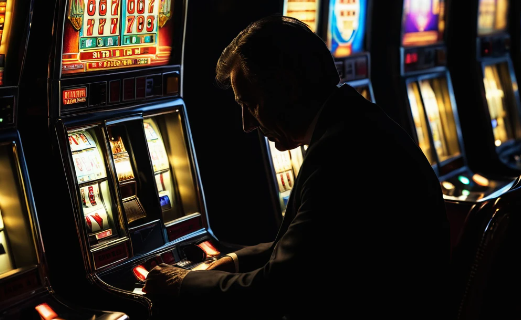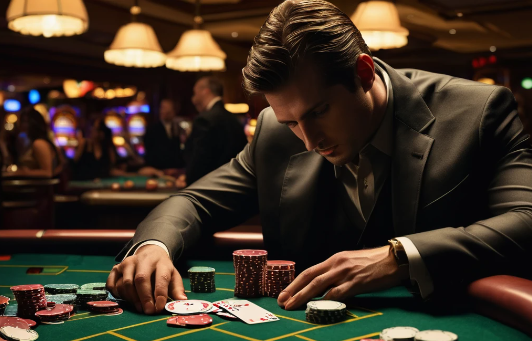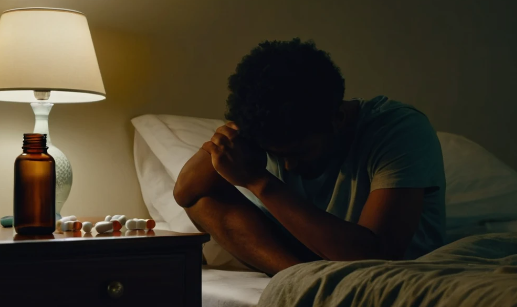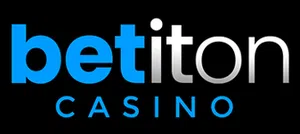
The Hidden Gambling Addiction
Gambling, for most people, is a form of entertainment – an occasional bet on a sporting event or a casual night at the casino. But for some, gambling can become a destructive obsession as addictive and devastating as any drug. The bright lights, the excitement of potential winnings, and the manufactured atmosphere of excitement can be an intoxicating mix, luring people into a cycle of chasing losses and risking more than they can afford.
Understanding the Similarities with Substance Abuse

Like drugs, gambling triggers the brain's reward system, releasing a surge of dopamine – the "feel-good" chemical. This pleasurable sensation reinforces the behavior, which creates multiple temptations for the individual to seek that same high again and again. Over time, the brain becomes less sensitive to this dopamine rush, requiring the person to gamble more frequently, with higher stakes, to achieve the same level of excitement.
As with substance abuse, a gambling addiction can quickly spiral out of control. The need to "chase" that big win can overshadow all other aspects of life. Relationships fray, finances crumble, and mental health suffers. The gambler may become isolated, secretive, and prone to anxiety, depression, and even thoughts of suicide.
The Devastating Consequences of Gambling Addiction

The impacts of obsessive gambling extend beyond the individual themselves:
-
Financial Ruin: Gambling addicts frequently lose far more than they win. They may drain their savings, max out credit cards, fall into debt, and even jeopardize their homes and livelihoods.
-
Relationship Breakdown: The lies, deceit, and financial strain associated with gambling addiction erode trust and intimacy, leading to strained relationships, separation, or divorce.
-
Mental Health Crisis: Compulsive gambling is closely linked with anxiety, depression, substance abuse, and even suicide attempts. The shame and desperation can become unbearable.
-
Criminal Activity: In extreme cases, desperate gamblers may resort to illegal activities such as theft, fraud, or embezzlement to fund their addiction.
The Path to Recovery

Admitting you have a gambling problem is the first, and hardest, step towards recovery. Breaking free from this addiction is challenging, but with determination and support, it is absolutely possible. Here are some ways to begin the healing process:
Seek Professional Help
-
Therapists specializing in gambling addiction can provide cognitive behavioral therapy (CBT), teaching you to identify triggers, develop coping mechanisms, and restructure your thoughts about gambling.
Join a Support Group
-
Sharing struggles and triumphs with others in similar situations can be incredibly empowering. Groups like Gamblers Anonymous offer a safe, non-judgmental space for support and understanding.
Practice Self-Exclusion
-
Many casinos and online gambling platforms offer self-exclusion programs that practice Responsible Gambling. This means asking to be barred from their establishments or websites, removing a major temptation.
Focus on Financial Recovery
-
Seek help from a financial counselor or debt management service to address the damage to your finances and establish a responsible budget.
Nurture Healthy Alternatives
-
Rediscover hobbies and interests that do not revolve around gambling. Spending time with loved ones, engaging in physical activity, or finding fulfilling work can replace the unhealthy excitements of gambling.
GamCare
If you or someone you care about is struggling with gambling in the UK, GamCare offers a lifeline. They understand the challenges of gambling addiction, and provide compassionate support, helpful advice, and access to treatment programs. You can reach them through their helpline, start a live chat for immediate help, or explore their website for more resources. [Link: https://www.gamcare.org.uk/]
Remember: Recovery is not a linear process. There may be setbacks along the way, but it is essential to persevere. Be patient with yourself, celebrate every small victory, and do not hesitate to reach out for support whenever you need it.


